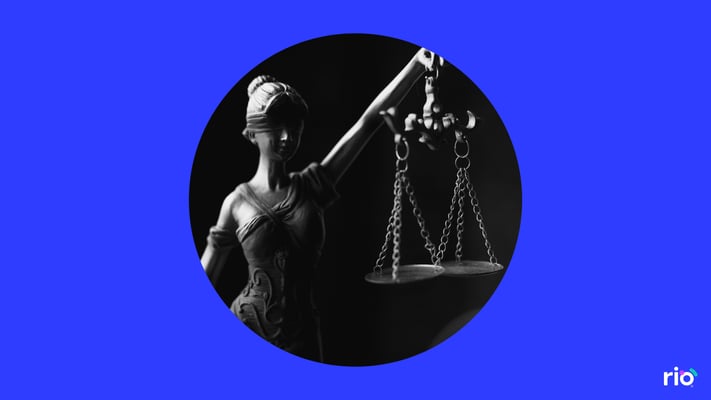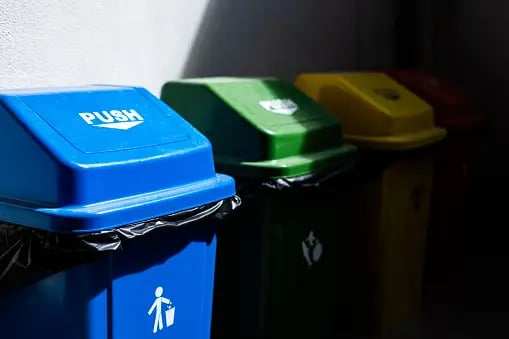Sustainability isn’t just about saving the planet anymore. It is about future-proofing your business, winning investor confidence, and staying ahead of increasingly complex regulations.
Yet most organisations are not moving as quickly as they could. It is not for lack of ambition or resources. The problem is that many are caught in the same traps that slow down projects, drain budgets, and leave sustainability teams stuck in “data wrangling” mode instead of making measurable progress.
At Rio AI, we have seen these bottlenecks play out across industries, and we know exactly how to clear them. This guide unpacks the five most common sustainability bottlenecks and gives you practical steps to remove them so you can accelerate impact.
The Data Maze
The problem:
Your sustainability data is scattered across multiple systems, business units, and suppliers. Some of it lives in spreadsheets on a shared drive. Some sits in ERP systems or CRM tools. Some comes in as PDFs from suppliers. Pulling it together becomes a long, frustrating process that eats into the time you should be using to analyse and act.
Why it matters:
Dispersed data leads to delays in reporting, inconsistencies in metrics, and ultimately poor decision-making. If you cannot get a clear picture quickly, you will always be reacting instead of proactively driving change.
How to smash it:
- Implement a single source of truth for sustainability data so it is instantly accessible to everyone who needs it.
- Automate data collection from internal systems and external suppliers to eliminate manual entry.
- Standardise data formats so you can easily compare results across time periods and departments.
- Provide supplier portals for easy, verified Scope 3 submissions.
Rio AI advantage: Our platform connects to multiple data sources, applies automated validation checks, and creates a real-time, centralised dashboard so you can stop chasing numbers and start using them.
Manual Reporting Mayhem
The problem:
If your sustainability team is still building reports manually, they are spending countless hours copying and pasting data into documents. This slows your ability to respond to trends, identify risks, and take advantage of opportunities.
Why it matters:
Manual reporting is a productivity killer. It also increases the likelihood of human error, which can damage credibility with stakeholders and regulators.
How to smash it:
- Replace static, once-a-year reports with real-time dashboards that automatically update as new data comes in.
- Create automated alerts for when KPIs drop below target so action can be taken immediately.
- Adopt a continuous reporting approach so insights are available when decisions need to be made, not months later.
Example:
One Rio AI client cut their sustainability reporting time by 60% after moving from manual processes to our automated dashboards. The result was faster decision-making and less staff burnout.
The Regulation Whiplash
The problem:
New sustainability regulations and frameworks seem to appear every quarter. CSRD, TCFD, ISSB, SFDR... the list keeps growing. Just when you think you have adapted to one framework, another is introduced with different requirements.
Why it matters:
If you are constantly scrambling to catch up, you risk non-compliance, reputational damage, and even financial penalties. The time spent firefighting regulatory changes could be better used on delivering impact.
How to smash it:
- Appoint a compliance lead to monitor regulatory developments and translate them into practical internal steps
- Build a flexible reporting framework that can easily adapt to new standards without having to be rebuilt from scratch.
- Use AI-driven compliance mapping to automatically align your data with multiple frameworks at the same time.
Rio AI advantage: We integrate regulatory updates into our platform so your reporting framework stays aligned without you having to start from zero every time something changes.
The Lone-Wolf ESG Team
The problem:
When sustainability is seen as “the ESG team’s job” rather than a shared responsibility across the business, it is almost guaranteed to stall. Without buy-in from executives and collaboration across departments, even the most promising initiatives lose momentum.
Why it matters:
Sustainability is interconnected with operations, finance, HR, procurement, and marketing. Without alignment, you get fragmented data, conflicting priorities, and duplicated work.
How to smash it:
- Show how sustainability KPIs link directly to business goals like cost savings, risk reduction, and brand reputation.
- Provide role-specific dashboards so each department can see the KPIs relevant to them.
- Embed sustainability into executive performance metrics so leaders are incentivised to drive progress.
Example:
One Rio AI client integrated sustainability targets into procurement contracts, resulting in suppliers proactively reducing their emissions because it was tied to ongoing business.
The Lag Effect
The problem:
Many companies still treat sustainability reporting as a once-a-year activity. By the time the report is ready, the opportunity to act on the data has passed.
Why it matters:
Sustainability progress relies on timely decisions. Delayed reporting means missed opportunities to optimise processes, cut costs, or address risks before they escalate.
How to smash it:
- Shift from annual or quarterly reporting to continuous performance monitoring.
- Feed sustainability data directly into operational systems so decision-makers can act in real time.
- Create a culture of immediate action where KPIs are reviewed regularly and changes are implemented quickly.
Rio AI advantage: Our platform turns sustainability metrics into live, interactive dashboards, ensuring decision-makers can respond to changes within days rather than months.
Why Smashing Bottlenecks Matters Now
Clearing these bottlenecks will transform sustainability from a slow, compliance-driven process into a powerful business engine. The benefits are immediate:
- Faster compliance with evolving regulations.
- Clearer visibility for stakeholders and investors.
- More time for strategy, innovation, and tangible action.
At Rio AI, we specialise in removing the friction from sustainability processes. With automation, compliance intelligence, and collaboration tools, we help you replace delays with momentum and deliver measurable, transparent impact.
Ready to move past the bottlenecks? Book your Rio AI demo today and see how fast sustainability can move when nothing is in the way.










